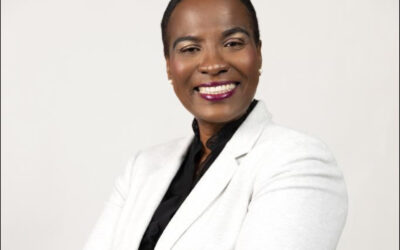You can now listen to Antigua News articles!

Social Media is Not News
By Kieron Murdoch | Opinion Contributor
One of the biggest challenges in media these days, whether traditional media or social media, is combatting misinformation and disinformation. It is especially difficult on social media where everyone is a content creator and people of similar opinions tend to be algorithmically grouped, thereby creating echo chambers where critical perspectives are diminished and reinforcement of one’s existing view is guaranteed.
In this environment, we have seen how readily a worrisome idea, a misleading story, a perceived fact or a perceived version of events can quickly become the accepted reality of many, and how significant the impact can be. Online, this happens in many spheres, especially in political discourse.
Social media also has the impact of removing national and cultural barriers to the sharing of ideas and the grouping of people into different camps. This is why you can come to a place like Antigua and Barbuda, far removed from the left-right, liberal-conservative structure of American and European politics for example, but find people rehearsing rhetoric for either side that applies to a context in which they do not live, but seem to experience vicariously through their online interactions.
But, to be fair, the removal of cultural barriers to the sharing of ideas and stories relevant to specific contexts is something that happened long before social media. We are a global village and have been for quite some time. We consumed traditional media via TV, print and radio long before the internet, and immersed ourselves in the goings on of other places, aligning ourselves with who was doing what here or there.
This power to connect people has long shaped the modern world. Throughout the last century, movements for political and social change in one part of the world have found resonance with people in many other parts of the globe who sympathised with the experiences or agreed with the ideas they learned of by watching TV or listening to the radio or reading something in print. This was long before Facebook, Instagram, YouTube, Threads, TikTok, Snapchat, Reddit, Telegram, Discord or X (formerly Twitter) were around.
Perhaps the difference with social media however is the ability introduced for people to connect directly, instantly, and stay connected, and without the filter of a publisher, producer, editor, writer, or professional content creator to get in between them and the message they are receiving. Now, everyone is a content creator with the ability to reach an audience of billions. In this environment, it seems the value of the newsman or newswoman to the audience has diminished, even though it is more needed than ever.
Before, when a politician said something, you would get the report from a broadcaster or a publisher complete with context, analysis and the ability to call bullshit. Nowadays, you can bypass all that and just speak more directly with your audience without the worry of someone getting in between. Now, pretty much anyone can become a purveyor of truth, speaking the gospel more often to an audience which has been selected through social media’s ability to amplify certain messages to those it knows are more likely to want to hear them.
In this world, we have figures all across the globe who use social media to spread false information, misleading information, rhetoric, incitement and bile, and people swallow it with immediacy, then they share it or repost it, and their network of friends or followers do the same. The Covid pandemic was a frightening example of how insane a world of misinformation can become.
We recall one example of a video being shared that purported (via an added caption) to show a mob of Chinese nationals in mainland China attacking a telecom pole on a city street. The caption asserted that those in the video were aware that 5G was the cause of the virus and were destroying the tower as a result. As it turned out, the video was from Hong Kong, China, and was filmed way prior during protests in that city. The mob were attacking a street pole with CCTV cameras as a rebuke to the authorities who were clamping down on protests.
In the world of politics, social media has made it a little bit easier for rhetoric to take the place of informed debate, reasoned statements, and cordial discourse. We all watched Donald Trump take to a debate stage before the last US election and declare that migrants were eating the pets of Americans and that his opponents were so zealously in favour of abortion that they advocated doing so “after birth”. As ludicrous as his suggestions were, they were on brand and led to no political consequences.
Inflammatory rhetoric and untrue statements are nothing new to politics. Let’s be clear. But what’s frightening, however, is how much faster you can galvanise an audience with the power of modern social networks by using these tactics in the modern age. It’s also worrying how large your audience can become.
Worse, this is the age where the data gathered on you through social media – your age, gender, race, nationality, location, schools attended, places lived and travelled, marital status, sexual orientation, musical interests, preferred genres of entertainment and television, dietary restrictions, income level, political opinions, and various other opinions based on everything you view, how long you view it, whether you liked or shared it, whether you continued to view similar content when it was suggested, etc etc – can be neatly packaged and made available legally or illegally to firms in the business of opinion influencing and voter influencing.
And worse still, this is the age where state and non-state actors organise thousands and thousands of fake accounts to manipulate what happens on social media sites, by spreading selected messages, and promoting them for a desired result. Just last month, a top Romanian court annulled the first round of the country’s presidential election, days after allegations emerged that Russia ran a coordinated online campaign via thousands of false TikTok accounts to promote a far-right outsider candidate who actually won in the first round of voting.
It may seem innocuous, but creating the appearance of momentum or consensus is a key strategy in gaining people’s attention. Consider the newsreels of citizens in Germany during the Nazi era saluting or chanting in adoration and support for Adolf Hitler and other National Socialist leaders. Many of these were highly choreographed moments which sometimes involved crowds of people selected for the purpose. They also occurred in an era where failure to show allegiance was punishable.
“The essence of propaganda consists in winning people over to an idea so sincerely, so vitally, that in the end they succumb to it utterly and can never again escape from it,” wrote Joseph Goebbels in his diary.
History has demonstrated across time and continents what damage can be done when the press or the media is not free, or used to propagate untruths and serve the interests of this faction or another, or when misinformation and rumour take hold of a people and their actions are influenced by untruths. What is to become of the world now when the means of communication have become so much more advanced, instant, diverse, dynamic and immersive?
In the midst of it all, many of us have lost our appreciation for the work of actual news professionals and journalists – one of the most threatened and undervalued professions in the Caribbean today. And while social media gobbles up advertising spend even from the small shop owner on Market Street buying $10 XCD’s worth of ads from Mark Zuckerberg on Facebook, the traditional media – radio, print, TV – that employed newsrooms have long been staved into lesser relevance, if not, out of existence.
If not that, then they are under assault by politicians who rush to open their own media outlets so that they can influence the narrative themselves, finding ways to subsidise it through the people’s pockets and gouging more market share away from anything remotely independent, and creating spaces where journalists cannot work. Or there’s state media, providing censored content at the taxpayers’ expense.
Meanwhile, the people turn more and more to each other, those referred to as “influencers”, and their chosen political prophets for facts and truth. Where did you hear that? On Twitter. Where did you get that information? It was being shared on Facebook. Who shared it? I don’t know. People. We seek entertainment, rhetoric and bias confirmation these days more than we seek to know what is true from a credible source.
Ameen Dias, known as “J Truth”, was voted by users on Facebook as Twin Island Media’s person of the year – a man who began many of his live streams with the disclaimer, “Nothing said in this video should be taken as a fact”. Influencers have seized the attention of the audience, spewing to them what they want to hear in a manner to entertain, while social media giants and politicians work against journalism.
Today, the New York Times reported that Meta, the parent company of Facebook, Instagram and Threads, “on Tuesday announced it is discontinuing its fact-checking program in the United States to allow for more ‘free expression.’”
The NYT said: “That means you’ll no longer see warnings on posts that are flagged as untrue, such as conspiracy theories or disinformation. Instead, the company will outsource that job to its users over the next few months by letting them leave ‘Community Notes’ under debated posts, similar to what X has done.
“Meta launched its official fact-checking program in 2016 and had a number of third-party partners doing the work in English and Spanish in the United States… Most posts were not fact-checked… There were also limitations on what could even be checked. Most notably, these fact checks were not allowed on politicians’ posts.”
At X, owner Elon Musk set about dismantling the site’s infrastructure for flagging false or misleading posts, getting rid of fake accounts, and welcoming back many banned accounts of persons who had been previously barred for misbehaviour under previous management policies. Progressively, X became a politically right echo chamber and less of a space for discourse or news. Just pastors preaching to the converted.
Several universities, news organisations and others have left X since the changes. Recently, the UK Guardian announced its decision not to post to its editorial accounts anymore.
It wrote in a statement: “This is something we have been considering for a while given the often disturbing content promoted or found on the platform, including far-right conspiracy theories and racism. The US presidential election campaign served only to underline what we have considered for a long time: that X is a toxic media platform and that its owner, Elon Musk, has been able to use its influence to shape political discourse.”
Also, part of this era, particularly when it comes to the politics of some of our northern neighbours, is the habit of discounting traditional news outlets wholesale. In the US, since before 2016, Donald Trump has amplified the notion that some traditional news media should be disbelieved automatically depending on their political bias. In his case, liberal US outlets that were heavily critical of him were “fake news”.
Liberal bias and conservative bias in US news networks are often overt and we would not suggest otherwise. And while one might argue that the soon-to-be US President (again) is not out of bounds to cast doubt on networks that do not politically align with him, as any candidate might do, we are concerned with the broader anti-establishment impact that such rhetoric has in the minds of many there and further abroad.
The idea propagated is that the media establishment cannot be trusted. People are encouraged to seek out influencers, commentators, and people with alternative viewpoints who were stifled by the mainstream – basically, listen to anyone except journalists. And where will you find such people in great numbers? Social media – the same social media whose overlords appear for the moment to be dismantling what minimal systems existed to flag and alert people when content is known to be false, misleading or dangerous, and who seem unable to prevent different actors from manipulating their platforms for opinion manipulation.
We won’t lie. There is a debate to be had about the right controls and fetters on speech and when silencing someone or punishing speech is appropriate. But what we have witnessed in the past decade is the rather deliberate use of the right to “free speech” as it exists in many places to different degrees as a shield to justify bile and lies. This too is not new. In the last century, many people who have been censured for bile and lies have complained that their rights have been infringed upon.
The question is: who is the just arbiter of truth? We live in a world where some people keep telling us not to trust the establishment. That means discounting the news media, the government sources (unless you like their politics), the academics, and the scientists. As imperfect as these sources or the institutions they have created may at times be, in their absence, what is there? Elon Musk? Influencers? Purveyors of truth looking for more likes and more views? Are we not engendering a more faulty information landscape?
Where is the global news and information media landscape heading? In China the name of the game is censorship. Public servants work around the clock to censor what people see. Speech critical of the ruling party is outright dangerous. Social media is monitored and censored in real-time. In Russia, the model is political control of traditional media and opinion manipulation on social media. All media is state media, as they have driven out anything with a semblance of independence.
In Europe, North America, Australia and New Zealand (the West), a significant portion of the media is divided between political factions, with the right especially stoking anti-establishment mistrust and driving persons into an ever more unfiltered social media space where obscene political content has more oxygen to breathe, and where people can be influenced more easily and more directly. Meanwhile, debates abound about the right controls that ought to be applied to speech on social media.
In most of Africa, the situation is deplorable when it comes to press freedom, the work of journalists, and the existence of non-state non-aligned media. While social media has been a powerful tool in supporting human rights and political progress in many nations, it is also a space subject to misinformation and organised manipulation campaigns in a continent where many countries lack the institutionalised independent media needed to counteract it.
Interestingly, African populations are reported to be prime targets for disinformation campaigns by Russia and China. Online, the Africa Center for Strategic Studies noted in March 2024: “Disinformation campaigns seeking to manipulate African information systems have surged nearly fourfold since 2022, triggering destabilizing and anti-democratic consequences.”
“Russia continues to be the primary purveyor of disinformation in Africa, sponsoring 80 documented campaigns, targeting more than 22 countries. This represents nearly 40 percent of all disinformation campaigns in Africa. These 80 campaigns have reached many millions of users through tens of thousands of coordinated fake pages and posts… The Chinese Communist Party (CCP) is the second most prolific Africa-wide sponsor of disinformation with five known multi-regional campaigns.”
“There is a strong link between the scope of disinformation and instability. Disinformation campaigns have directly driven deadly violence, promoted and validated military coups, cowed civil society members into silence, and served as smokescreens for corruption and exploitation. This has had real-world consequences for diminishing Africans’ rights, freedoms, and security.”
What about us? Here in Antigua and Barbuda, the traditional media is owned largely by politicians apart from a few exceptions such as ourselves. State media produces censored reports of the goings on the twin island state.
But social media is perhaps not nearly as toxic as in the traditional West as we do not yet ascribe to the left-right political spectrum in the manner that others do. And as bad as our politics can be, we do not have to cope with daily social media conspiracies about what this political party is doing, or the circulation of false and inflammatory rhetoric or claims every week.
Still, though, the relative weakness of non-state, non-aligned media and the diminishing number of journalists here has allowed for the persistence of a highly uncritical political environment where whatever the government reports is largely held to be fact and where the government’s and the opposition’s supporters may casually mistrust reports emanating from each other’s aligned source. In reality, we do not have very many influencers, podcasters, YouTubers and the like, gobbling up people’s attention. Nor do we have anyone preaching that the traditional outlets are “fake news”.
Still, with the absence of a robust journalistic practice and with the nature of social media being what it is, many are inclined to get their facts from a post by a random user or a favoured politician or social media personality faster than anyone in a newsroom could investigate the event. In some instances, there is no post-story, and the social media version becomes recorded history so to speak.
This reality continues to present a challenge to the ability of correct information to reach the national audience. Opportunities for journalists are not growing, so we’re sorry to report that it will only get worse in the immediate future. In the meantime, throughout the region, we continue to be drawn in by left-right debates and culture wars in other free societies which at times dominate the social media space.
About the writer:
Kieron Murdoch is an opinion contributor at antigua.news. He worked as a journalist and later as a radio presenter in Antigua and Barbuda for eight years, covering politics and governance especially. If you have an opinion on the issues raised in this editorial and you would like to submit a response by email to be considered for publication, please email staff@antigua.news.
















Content development, critical analysis … we need return to theorizing for one and, take back the beauty and detail our profession once held in dynamic.
Understandably, traditional journalists feel threatened by social media. Some of your points were alarmist and didn’t really prove that social media is as bad as you want the public to believe. Trump’s debate statements had nothing to do with social media. According to a documentary I watched, Hitler’s influence was not because of people chanting, it was because of things he did behind the scenes such as reaching out to poor, unemployed young men, starting camps and “Hitler’s youth” programmes and convincing them they would be better off without rich immigrants such as Jews. Basically he appealed to their greed and xenophobia. People didn’t listen to journalists in the past for their own views but for their unbiased presentations of both sides of issues. Disinformation campaigns in social media don’t necessarily convince people of things. Most people believe things they hear or read to different degrees depending on the source. If info comes through gossip sort of like some forms of social media they will think it might have some truth but they are not sure how much. If it really matters to them they will seek out sources that they trust more to see if it was reported there or for more details. Social media has its uses. It is helpful to hear what other average people think about a matter. Traditional media has its uses to hear the official point of view from paid experts. There is no need for a battle between the two. The public loves social media, and it is here to stay. So, just learn to live with it.
A verse in the Bible says “In the multitude of counselors there is safety.” I totally agree with that verse. It’s best to listen to all opinions, find out the reasons for the opinions, supporting evidence etc. then make a final judgement. There is no need for censorship. There are already laws against libel, defamation etc. so people should tred carefully in what they say about others. Apart from that the more freedom of speech the better. Intelligent society has always sought out multiple opinions. In a court of law everyone has their say, presents their evidence, then a verdict is reached if possible. It would be an injustice to convict without a fair trial. Similarly, in medicine, a doctor must listen to the patient’s experience, perform tests, consult the medical literature and other experts as needed before deciding on a diagnosis and prescription, particularly for a rare or new problem. Would you take a prescription from a doctor who wrote one without doing the necessary tests, consultations etc. or didn’t listen to you first? Of course not. If you are a Christian, you will often find that simply sticking to following God’s commandments leads you in the right direction. The arbitrators of truth are thus either divine revelation or conclusions formed after hearing everyone out and analysing all the evidence not censorship.
“Disinformation campaigns on social media don’t convince people of things”.
This statement is false and runs against a great deal of evidence and case studies that anyone can find with a simple online search. The facr that you casually asserted that disinformation on social media has no effect is convincing people of rhings suggests that you have not the slightest idea what you’re talking about. Disinformation online gas become such a problem that is is a whole area of academic study, and national security policy in various countries. To say that disinformation campaigns don’t convince people of things suggests to me that you are less than 4 years old and did not experience the covid 19 pandemic.
“Most people believe things they hear or read depending on the source”.
Here again. You makes a broad statement that asserts that most people actually bother to tey and discover the source of the information they’re getting. Many people do not, especially in the social media age. That is the whole trouble of social media is misinformation. A random screenshot is taken and shared of what appears to be a new site and people take the information in the screenshot as gospel and share it. How may actually go a search the the original site? How many look for where the site is based, in what country? How many people look to see if the site is described anywhere else as having a bias of any kind? Is of left leaning? Right leaning? A gossip site? A tabloid site?
Your statements fly in the face of reality. You seem to be speaking foe yourself and how you engage with information. But please don’t ruah to think that “most people” are as sensible as you.
Never thought I’d see the day when journalists would be arguing in favour of censorship…
Comment sections are really something to behold. Two comments under here say the article was arguing for censorship. Where did it make a case for censorship? It presented a challenge posed by social media in which false information, disinformation and at times inciteful rhetoric more easily reach the consumer without an ounce of balance, debate, context, fact checking or anything else.
The point the writer made was that it is so much easier for people to be disinformed when the content they consume is fed to them by an algorithm that is cherry pickign what they see on the basis that they have already demonstrated a preference for certain content or points of view, and that where as journalism would usually be a healthy dose of reality in such situations, in many places journalists and getting fewer in number because the traditional media is who hired journalists before. Social media giants are nor hiring journalists to deliver accurate information to their users. They let users post what they like and resist calls to moderate. They even resist calls to pay news businesses for posting news on their sites. Meanwhile, the shift in advertising preference from traditional media to social media means there is less capacity to pay journalists.
Where was there and argument made in favour of censorship ?
People read one thing and understand something totally different.